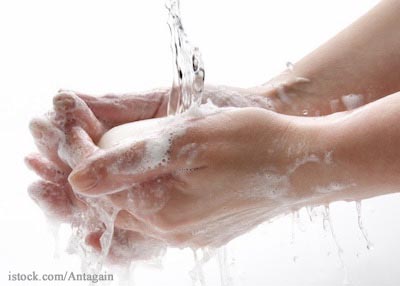A new study has shown that antibacterial soaps are better at killing Shigella bacteria than soaps that do not contain antibacterials. But do the risks of using antibacterial soaps outweigh the benefits?
 Each year, about 18,000 Americans are diagnosed with shigellosis, the infection caused by the Shigella bacteria. Symptoms of shigellosis include diarrhea that contains blood of puss, fever, and stomach cramps starting a day or two after exposure. Symptoms generally last about a week and hospitalization is rarely required.
Each year, about 18,000 Americans are diagnosed with shigellosis, the infection caused by the Shigella bacteria. Symptoms of shigellosis include diarrhea that contains blood of puss, fever, and stomach cramps starting a day or two after exposure. Symptoms generally last about a week and hospitalization is rarely required.
For the study, researchers compared two regular soaps with three antibacterial soaps and found that, overall, the antibacterial soaps were better at reducing the level of Shigella bacteria than regular soaps. But the active ingredients in at least of the antibacterial soaps tested have raised concern at the U.S. Food and Drug Administration (FDA) and environmental groups
Tricolsan is the active ingredient used in many antibacterial soaps including one that was part of the study. According to the FDA, tricolsan “may alter the way hormones work in the body” and may contribute to the problem of making bacteria resistant to drugs. Antibiotic resistance is a major public health problem because it has a big impact on the success of medical treatment of illness and injury. What’s more, not enough is known about the long-term exposure to these active ingredients. So the potential risks may be even higher.
The Environmental Protection Agency (EPA) regulates tricolsan in pesticides. For more information about it, click this link to the agency’s website.




